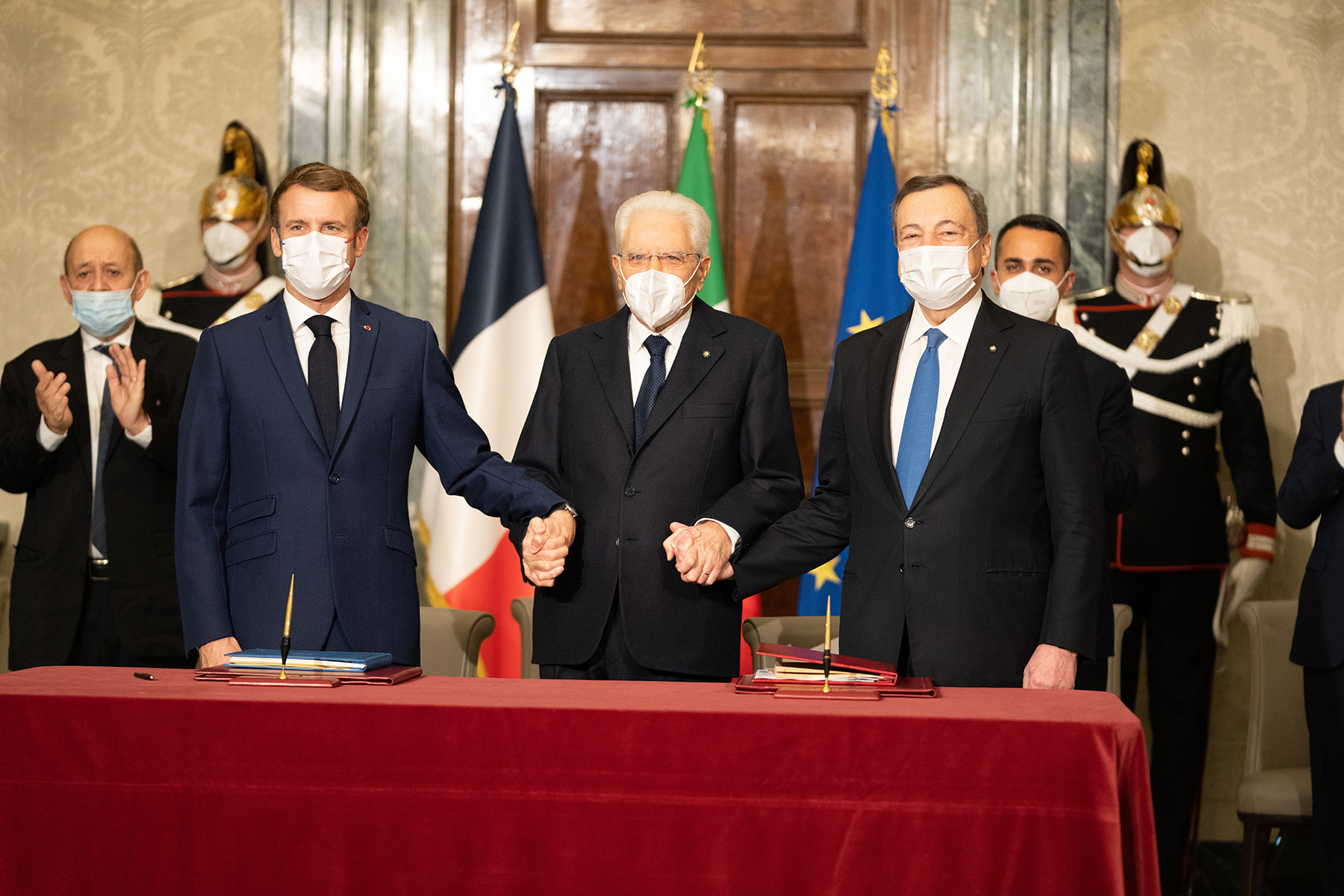What will change with the France-Italy Treaty according to the French press

The Quirinal Treaty seen by France. Enrico Martial's article
The story in the French press on the bilateral treaty for enhanced cooperation signed at the Quirinale is not unlike the Italian one. It is considered a tool for new relationships after a troubled period.
On the eve of the signing, Le Monde recalled among the friction elements the Libyan dossier, the failure of Fincantieri's purchase of the Chantiers de l'Atlantique of Saint-Nazaire, the migration issue and the tensions of the Conte 1 government in 2018, in the cases of the French gendarmes in Bardonecchia and the visit of Luigi Di Maio to the yellow vests. However, he noted the spontaneous attraction for Italy on the part of President Emmanuel Macron, who at the beginning of his mandate had chosen the Italian Claudia Ferrazzi as cultural adviser.
The treaty is a sign of overcoming those difficulties: for Le Figaro of "a long diplomatic winter", for Les Echos a "friendship rediscovered" after past tensions.
Le Monde is perhaps the newspaper that seemed least optimistic about the improvements that could derive from the Treaty: it is a “lucky alignment between planets”, destined to last only a moment.
In some reports, attention is paid to the Italian opposition to the Treaty and in particular to the leader of the Brothers of Italy, Giorgia Meloni, such as Le Dauphiné Libéré of Grenoble and Ouest-France who had already interviewed Marc Lazar on 5 July 2021.
There is a nerve on this, because on the occasion of the Aachen Treaty with Germany in January 2019 Marine Le Pen developed a campaign starting from an intervention on CNews (Vincent Bolloré's French Fox news). It was then relaunched by social media, which newspapers soon treated as fake news, with a re-establishment of content that filled several pages for days, as did Le Monde , France 2 , or the Catholic La Croix .
By the way, it is precisely the Catholic La Croix who on the eve of the Quirinal Treaty compared the two economies: on the GDP (2500 billion in France and 1900 billion in Italy, second and third country in the European agri-food chain) on tourism (around the 8.5% of GDP in France and 13% in Italy), on debt (118% and 155%), on unemployment (7.7% and 9.1%).
Italy has a strong prevalence of SMEs, France has large groups: manufacturing in Italy accounts for 16% of GDP and 10% in France. There are large joint companies: on semiconductors in STMicroelectronics, and then Thales Alenia Space for satellites, recently Essilor Luxottica and Stellantis.
Failed operations are also noted: Alitalia for Air France, Chantiers de l'Atlantique for Fincantieri. The Italian acquisitions in France are however greater than the French ones in Italy: 47 billion euros compared to 32 billion between 2007 and 2020.
A lot of the luxury was acquired by French companies (Gucci, Bulgari), but the trade in 2020 at 94 billion euros was favorable for Italy for 13 billion.
La Tribune also made a contribution to mutual understanding of the two economic systems, with an intervention by Edoardo Secchi, founder of the Italy-France Club.
On an economic level, Les Echos noted that the Treaty is one more element to find a solution to the Franco-German tank issue, in which it discusses how to involve Italian skills, including through acquisition, between the other, by Oto Melar a.
Germany would have a conditioned reflex on the frontal defense to the east, the French one would also think about comparisons in the urban area, and the Italian role could contribute to shared visions for the new tank, while remaining with the head and production in Italy.
It is a tripartite vision that returns in the comments, with the Treaty seen as a bilateral contribution on a European level, in harmony with the words heard in the press conference by Emmanuel Macron and Mario Draghi. Libération also highlighted the European side, taking into account the political situation at the end of the era of Angela Merkel.
Radio France culture symbolically aired the European and Italian-Franco-German tripartite dimension by having Renew's European parliamentarian Sandro Gozi, the director of the magazine le Grand Continent, Gilles Gressani (who lives in Paris and between 'other is from Valle d'Aosta), and the German Daniela Schwarzer, head of Europe and Eurasia of Open Society but until April 2021 director of the German Council on Foreign Relations.
Although it has therefore been discussed in the press as well as on the allnews networks , it should still be noted that on the evening of November 26, the flagship television France 2 missed the news, taking only a joke from President Macron on the migrant crisis from the press conference at the Quirinale. between UK and France.
This confirms that the topic has been disseminated to a more attentive audience – readers of newspapers and users of in-depth media – rather than on the tables of families, rather angry and sensitive to anti-politics, and who had already listened to several fake news on the Franco-German Treaty of 2019.
This is a machine translation from Italian language of a post published on Start Magazine at the URL https://www.startmag.it/mondo/trattato-quirinale-reazioni-stampa-francia/ on Sun, 28 Nov 2021 07:32:09 +0000.
